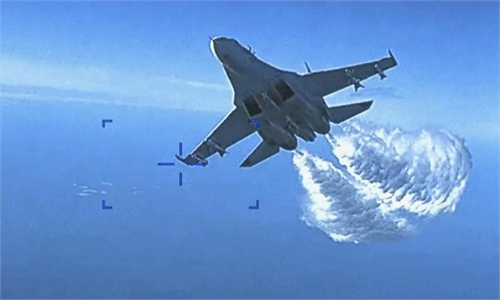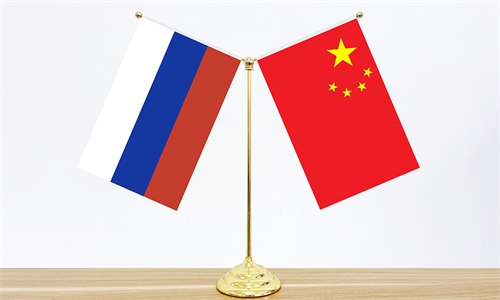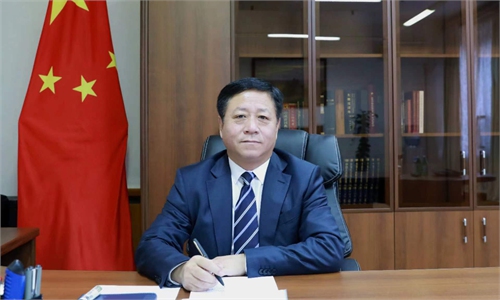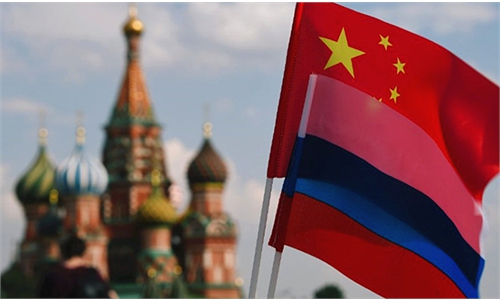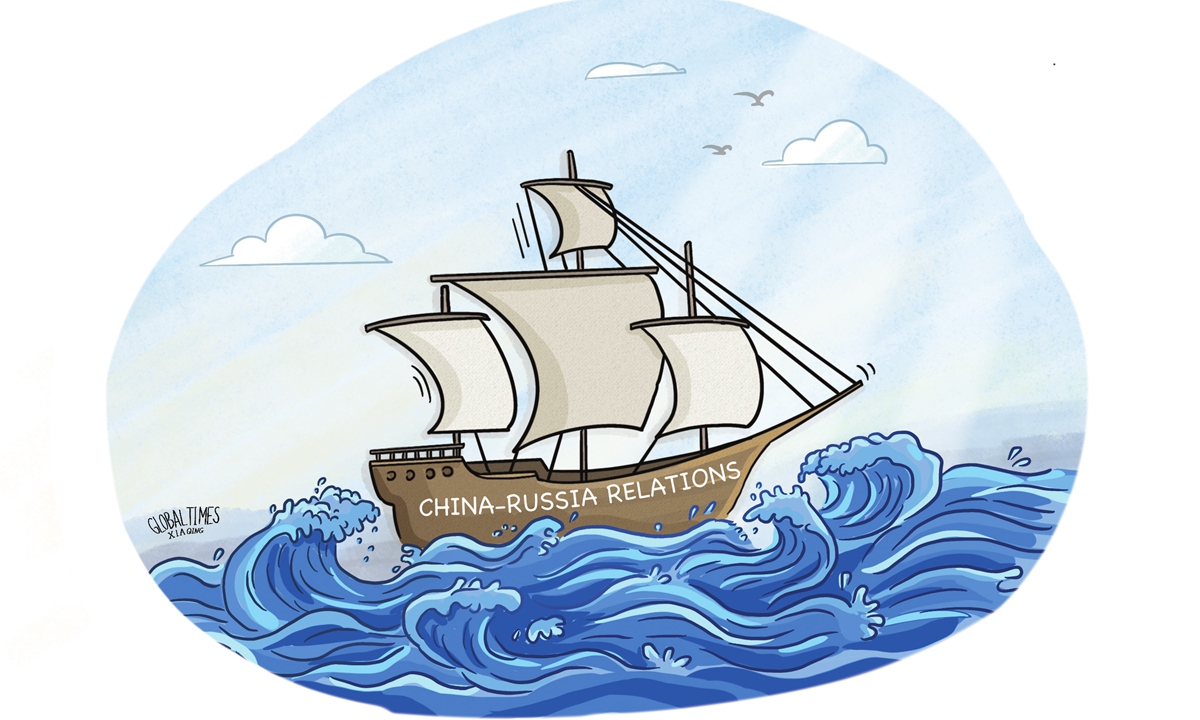
Illustration: Xia Qing/GT
The Chinese Foreign Ministry, on Friday, announced that Chinese President Xi Jinping will pay a state visit to Russia from Monday to Wednesday at the invitation of Russian President Vladimir Putin.The world needs this strategic partnership between China and Russia because it is based on equal rights and respect for the interests of other states. That means that fair relations between the powers are possible at a time when the West is trying to convince everyone of the inevitability of the dictate by the strongest.
Both China and Russia are building their relations on legitimate principles, the very possibility of which the West has always concealed from the rest of the international community, attempting to convince the world that limiting the sovereign rights of states is a necessary rule. But this is not true, and the future international order may indeed be more respectful of such rights of countries, regardless of their size and power. The stability of China-Russia relations amid global instability and multiple challenges proves that this model of partnership works. It also shows that twisting arms is not a universal rule of the political game.
What makes the relationship between China and Russia so different compared to what we are used to observing in international politics? First, these relations are a product of the internal development of both great powers. This has been a rather unique case in the history of international politics. Usually, the important relations of strategic partnerships tend to be the result of external circumstances. The great powers have mostly not been willing to come together. Such unity only happens during major military conflicts or world wars.
However, the partnership between China and Russia was created well before the West began actively destroying the international order. The first important decisions made toward a rapprochement were made by Moscow and Beijing when globalization was still stable and the world had not yet entered a period of serious turbulence. These decisions were related to a need to ensure the peaceful development of Eurasia while creating new opportunities for economic development and sustainability. Acting for their own good, China and Russia did nothing that could harm their national interests or slow down economic development. Everything jointly achieved by both states was based on their well-understood priorities and capabilities.
Second, the partnership between China and Russia is based on equality of rights and respect for each other's interests. The relationship between the US and its allies represents sole leadership, but not partnership. The purpose of this alliance is to maintain hegemony in world affairs. And for the West, the ability of the US to control the other members of this community is a condition of survival of their common hegemony. Such a relationship is impossible for truly sovereign states, and that's why it does not exist outside the West. Russia and China are great powers that oppose the limitation of sovereign rights - this has been a prerequisite for their cooperation as it has developed.
Third, the purpose of the China-Russia partnership is not to violate the rights of other countries. The Chinese and Russian economic systems and internal stability do not require a parasitic attitude toward the rest of humanity. In order to achieve their own development goals China and Russia do not need to restrict the access of other nations to the benefits of globalization and world trade. In other words, Chinese and Russian foreign policies are not imperialistic. Therefore, they can develop incredibly broad international partnerships rather than look at the world from the position of a besieged fortress.
Washington looks at the world differently compared with Moscow and Beijing. For the US, prosperity depends on hegemony, and all practical policies must support this fundamental goal. Therefore, the West's most important tool is pressure, and China and Russia's most significant tool is cooperation. The China-Russia partnership is not directed against anyone else in the world - it is not an instrument of war, but one of peace.
China and Russia make no secret of the fact that they share common views on the contemporary international order and the necessity to improve it. Their approaches to the world order have been reflected in numerous joint documents, including the Joint Statement adopted in Beijing in February 2022. In order to put their principles into practice, Moscow and Beijing are working to strengthen the Shanghai Cooperation Organization and BRICS, and protect the rights of the UN and international law. The goal of China and Russia's common approaches to world affairs is not to assume the position of a hegemon, but to abolish existing ones.
Finally, China and Russia value globalization and seek to preserve the freedom of international trade, investment, and technological exchange. Even under pressure from the US, Moscow and Beijing do nothing to cut the existing stable ties between the different states of the world. China and Russia understand that globalization is a prerequisite for the reduction of poverty, international development, and access to new goods and technology for people over the world. It is a much more reliable way to preserve universal peace as opposed to trying to force everyone to play by the rules that benefit a small number of states.
In reality, the relations between China and Russia are not exceptional. They represent a normal mode of partnership between states that can become the basis for a more stable international order. The development of dialogue between Moscow and Beijing shows that this path can be followed even in the most challenging times for the sake of global stability.
The author is Moscow-based Valdai Club program director. opinion@globaltimes.com.cn
